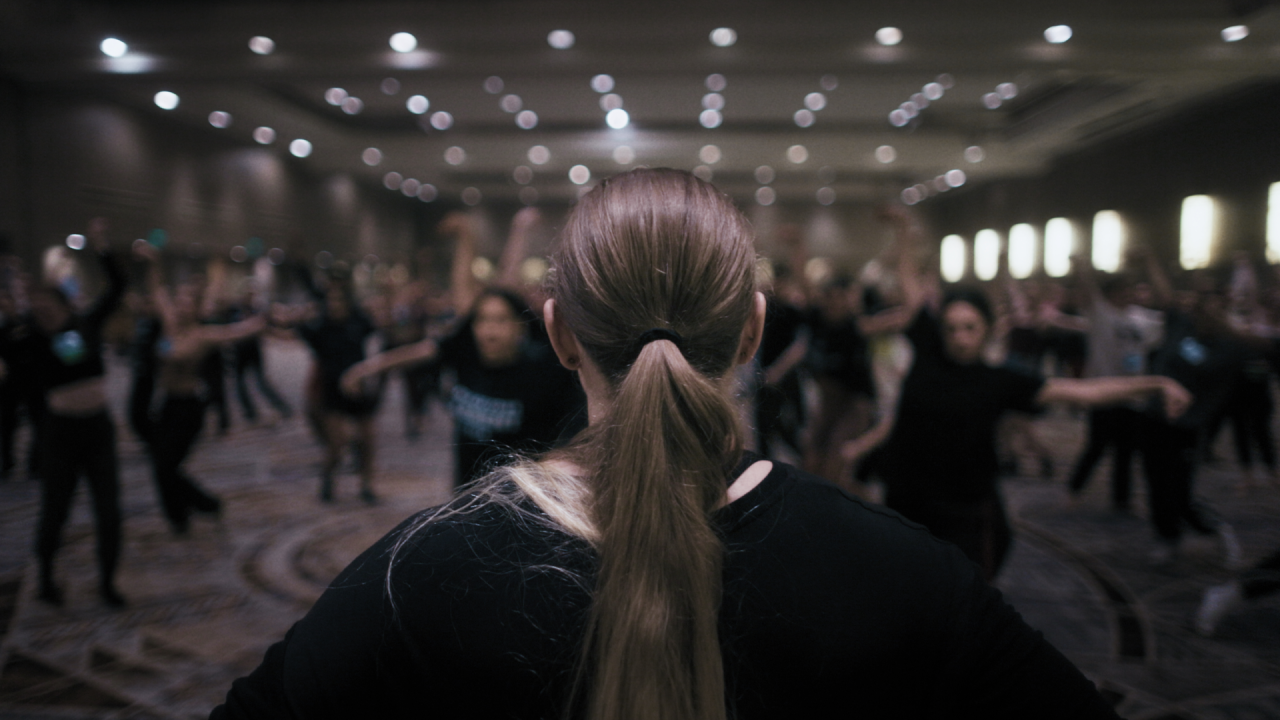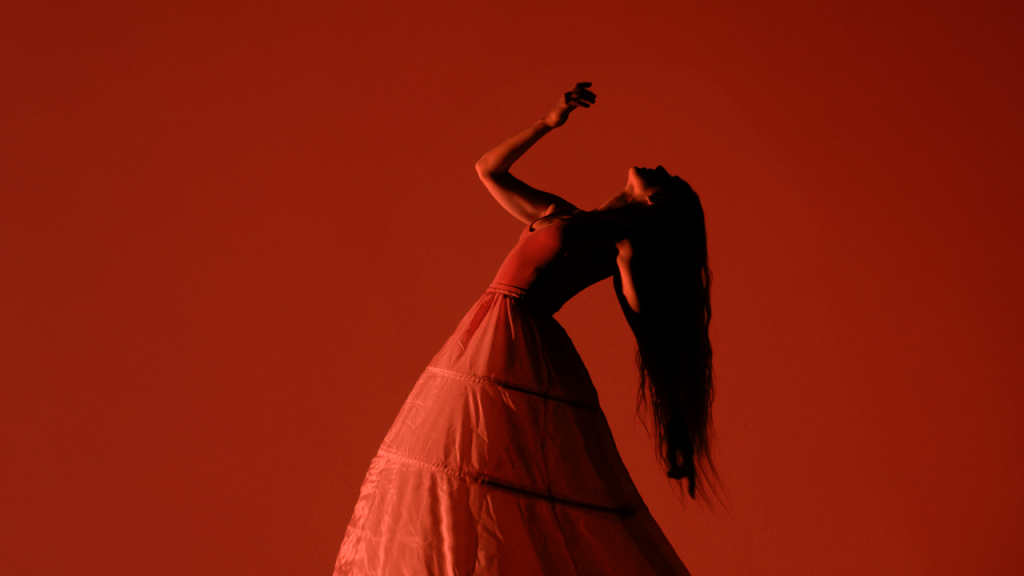There’s something liberating and constricting about getting diagnosed at a later age in life. I was diagnosed as neurodivergent when I was 35, a whole life lived not knowing why my personal life had been going through routes unlike any of the people in my immediate circle. The diagnosis came as a liberation, but also as a shock. “So it’s official!” I thought to myself as I blinked at my therapist. I was reviewing an entire life of sensory overwhelm, tasting emotions, and describing colors in texture. Also, avoiding social interactions except in controlled environments that I carefully orchestrated. I oscillated between periods of extreme socializing phases and severe isolation.
Alexander Hammer’s brilliantly shot, directed, and choreographed Room To Move is a documentary that explores this delicate and sensitive topic. It covers getting a life-changing diagnosis at a critical stage in an artist’s life. In this case, renowned performer and choreographer Jenn Freeman no longer feels fulfilled by dance, the thing that encapsulated her entire existence for the past 33 years.
Hammer creates a cacophony of sounds, visuals, textures, and movements. Not only are the dance sequences shot beautifully, but he invites the viewer into Freeman’s complex world, a very relatable angle in the documentary that doesn’t alienate or talk about neurodivergence from a distant standpoint, but makes it cozy and familiar. Every symptom and heightened sensation Freeman goes through is captured through his lens.

One of the things that I salute Hammer on is how intricate his outlining of neurodivergence is. This documentary highlights various symptoms and manifestations of life for a neurodivergent person. It is both comforting and educational as I try to imagine how to convey what it means to be “me.” I don’t believe I could find a better documentary than this one. I never thought I would watch “emotional overload” expressed on screen this beautifully and accurately. However, he does a great job of it. His poetic, impressionistic sequences are my favorite part of the documentary. It also helps that the bond between him and Freeman enriches the emotional content of the film. This makes the viewer an active participant in the experience rather than a passive observer.
The key to creating a successful, impactful documentary is not to idolize the subject or portray them as demi-heroes. Hammer presents Freeman through the lens she wants the audience to see. He is finally dismantling years of fetishizing the brilliant neurodivergent on screen. While many neurodivergent individuals are highly talented and creative, much of this often arises from their severe social isolation. It is sometimes also due to their struggle to navigate a neurotypical world. It’s less about genius or talent than about embracing the one path available. This is given the limited support they receive to explore other directions in life. Freeman used dance to mask her stimming before she even understood what it meant. As a child, all she did was dance. The fact that her dance serves as a means of expressing her intricate emotional inner world makes the distinction between talent, genius, and neurodivergent expression more intertwined. It is more intertwined than placing each term in a separate box.
Room To Move talks about an important topic that scares creatives from tackling. What if the artist wakes up one day and realizes they’ve had enough? I’ve gone through that many times. Even things I love and dedicate my life to can feel stale and no longer fulfilling, only because my truth is the missing part of the equation. But watching Freeman give her one-woman solo show, a big smile on my face, I believe again in the power of art and the power of healing through communication.
Room To Move held its World Premiere as a part of the Spotlight Documentary section of the 2025 Tribeca Festival.
Director: Alexander Hammer
Rated: NR
Runtime: 110m
Room To Move talks about an important topic that scares creatives from tackling. What if the artist wakes up one day and realizes they’ve had enough? I’ve gone through that many times. Even things I love and dedicate my life to can feel stale and no longer fulfilling, only because my truth is the missing part of the equation. But watching Freeman give her one-woman solo show, a big smile on my face, I believe again in the power of art and the power of healing through communication.
-
GVN Rating 8
-
User Ratings (0 Votes)
0
Jaylan Salah Salman is an Egyptian poet, translator, and film critic for InSession Film, Geek Vibes Nation, and Moviejawn. She has published two poetry collections and translated fourteen books for International Languages House publishing company. She began her first web series on YouTube, “The JayDays,” where she comments on films and other daily life antics. On her free days, she searches for recipes to cook while reviewing movies.





![‘Frankenstein’ Review – Guillermo del Toro’s Definitive Look At The Nature And Nurture Of Monstrosity [TIFF 2025] ‘Frankenstein’ Review – Guillermo del Toro’s Definitive Look At The Nature And Nurture Of Monstrosity [TIFF 2025]](https://cdn.geekvibesnation.com/wp-media-folder-geek-vibes-nation/wp-content/uploads/2025/10/Frankenstein-175_PF_20240430_20377_R-300x200.jpg)
![‘Wake Up Dead Man: A Knives Out Mystery’ Review – In Rian Johnson We Trust [LFF 2025] ‘Wake Up Dead Man: A Knives Out Mystery’ Review – In Rian Johnson We Trust [LFF 2025]](https://cdn.geekvibesnation.com/wp-media-folder-geek-vibes-nation/wp-content/uploads/2025/10/Wake-Up-Dead-Man-A-Knives-Out-Mystery-300x169.jpg)